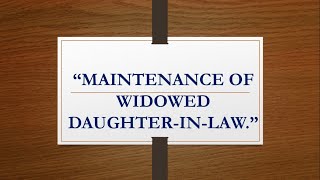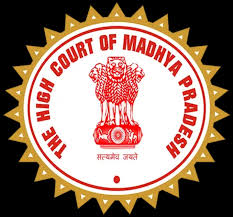Rajendra Chandra Singh Samant, J
1. This writ petition has been brought under Article 227 of the Constitution of India, seeking indulgence of this Court to quash the impugned order
dated 04.01.2021 passed by the court of Civil Judge Class-I, Kunkuri, District- Jashpur (C.G.) in Civil Suit No. 25A/2015.
2. It is submitted by learned counsel for the petitioner, that the original plaintiff- Ignesh Lakda (Decease) has filed application for declaration of title
and permanent injunction with respect to the land bearing Khasra No. 241/1 admeasuring 1.173 Hectare, situated at Village- Kunkuri, District-
Jashpur against Margret Tete, who is respondent No. 9 in this writ petition. Respondent No. 1 to 8 are legal representatives of the deceased/ plaintiff.
The petitioner is claiming to be the owner of the suit property, on the ground that the suit property is part of the land bearing Khasra No. 241/2, on
which, the petitioner has title and on this basis, prayer was made in application under Order 1 Rule 10 of the C.P.C. to implead the petitioner as party
in the civil suit. This application has been dismissed by the impugned order.
3. It is further submitted by learned counsel for the petitioner that the petitioner has valid ground to be impleaded as party for having common interest
on the suit property. The relief that has been sought by the plaintiffs in that case regarding declaration of title over the suit property, shall have direct
effect on the interest of the present petitioner. However, the defendant/ respondent No. 1 has pleaded in her written statement that her husband was
placed in possession over the disputed property by the present petitioner, therefore, the petitioner was a necessary party.
4. Reliance has been placed on the judgment of Madhya Pradesh High Court in Panne Khushali Vs. Jeewanlal Mathoo Khatik, reported in 1976
MPLJ 170, in which, it has been determined as to who shall be necessary party in a civil suit. The case of the petitioner is covered by this decision. It
is submitted that in Gurmit Singh Bhatia Vs. Kiran Kant Robinson & others, reported in 2019 SCC OnLine 912, it has been held by the Supreme Court
that the party proposed to be added has direct and legal interest in the controversy involved in the suit, is a necessary party. Reliance has also been
placed on the judgment of the Supreme Court in Hari Mohan Sharma & another Vs. Charanjeet Singh Rekhi & others, reported in (2019) 12 SCC 412
& Kanaklata Das & others Vs. Naba Kumar Das & others, reported in (2018) 2 SCC 352.
5. The demarcation report of 22.05.2006 mentions that the petitioner is in illegal possession on the part of Khasra No. 241/1 admeasuring 0.740
Hectare and it is the pleading of the defendant/ respondent No. 9, that her husband was placed in possession of the disputed property by the petitioner,
therefore, the petitioner is necessary party.
6. Considered on the submissions. It is pleaded in the plaint that the defendant/ respondent No. 1 has been found in illegal possession of 0.050 Hectare
of land, which is part of Khasra No. 241/1. After series of litigations, between respondent No. 9 and the plaintiff, the order has been passed in favour
of the plaintiff by the Board of Revenue. Subsequent to that, in another demarcation, it has been reported that the petitioner is in illegal possession of
0.740 Hectare of land of Khasra No. 241/1, which was challenged before the revenue court in which, the plaintiff has succeeded. It is thus found
mentioned in the plaint itself that the petitioner also had been asserting claim on the suit property and there is pleading of the defendant that the
possession of the suit property was obtained by her from the petitioner.
7. In case of Panne Khushali (Supra), the Full Bench of Madhya Pradesh High Court has held in paragraph 7, which is as under:-
“7. For determining the question who is a necessary party, there are no tests enumerated in the forequoted Order 1, Rule 10. The question has to
be determined in each case on its own facts, bearing in mind the relevant provisions of law under which the claim is made. The discussion about the
necessary or indispensable parties in ""Corpus Juris Secundum"" Vol. XXX under the heading ""B. Necessary or Indispensable Parties"" reflects on the
tests for determination as to who is a necessary party. The relevant [portions of this can be beneficially quoted herein-below :--
142. Statement of Rule.--Necessary or indispensable parties are those without whom the Court will not proceed to any decree, even as to the parties
before it. Included in this class are all persons who have an interest in the controversy of such a nature that a final decree cannot be made without
either affecting their interests or leaving the controversy in such a condition that its final determination may be wholly inconsistent with the equity and
good conscience. Necessary or indispensable parties are those without whom the Court will not proceed to any decree, even as to the parties before
it. This class includes all persons who have an interest in the controversy of such a nature that a final decree cannot be made without either affecting
their interests or leaving the controversy in such a condition that its final termination may be wholly inconsistent with equity and good conscience.
Accordingly, persons whose interests will necessarily be affected by any decree that can be rendered are necessary and indispensable parties, and the
Court will not proceed to a decree without them, while parties whose interests will not be affected by the decree sought, although they may have an
interest in the subject-matter, are not ordinarily necessary parties, although, as shown infra § 146-148, they may sometimes be proper parties under
the general rule, in order to avoid a multiplicity of suits. Therefore, the object rather than the subject of the suit must be looked to, and only those are
necessary parties whose rights are involved in the purpose of the bill, and the prayer for relief is also important in determining the requisite parties, as
one need not be made a party against whom no relief is demanded, provided his rights will not necessarily be affected. All those against whom relief is
prayed are necessary parties, and persons whose rights will be affected by the decree are necessary parties, although no relief is prayed against them.
The term ""necessary parties"" also includes persons who, while not necessary or indispensable on account of their own interest, yet are so connected
with the subject-matter of the controversy that it is necessary to have them before the Court for the proper protection of those whom the decree will
necessarily and directly affect A defendant cannot be required to litigate questions which primarily and directly involve issues with third person not
before the Court.
The decision in Razia Begum v. Anwar Begum, AIR 1958 SC 886 by their Lordships of the Supreme Court also throws a light on the question as to
who is a necessary party. From the relevant observations which shall be reproduced hereinafter, it ig discernible that the necessary party is that in
whose absence the suit cannot be effectually disposed of. The relevant observation from the aforesaid decision is reproduced hereinbelow :--
He rightly pointed out, and there was no controversy between the parties before us, that the added defendants do not come within the purview of the
words ""who ought to have been joined"" which apparently have reference to necessary parties in the sense that the suit cannot be effectively disposed
of without their presence on the record.
8. The Supreme Court in Gurmit Singh Bhatia (Supra), held in paragraph 5.2 that two tests are to be satisfied for determining the question, who is a
necessary party. Firstly, there must be a right to some relief against such party in respect of the controversies involved in the proceedings; and
secondly, no effective decree can be passed in the absence of such party.
9. Similarly the view of the Supreme Court in Hari Mohan Sharma (Supra). In Kanaklata Das (Supra), it has been held by the Supreme Court in
paragraph 11.5 that a necessary party is one without whom, no order can be made effectively, a proper party is one in whose absence an effective
order can be made but whose presence is necessary for a complete and final decision on the question involved in the proceeding.
10. On the basis of the facts that are present at this moment, the dispute between the plaintiff and the petitioner, is present, which is reflected from the
pleading in the plaint and further, there is a pleading of the defendant that she was placed in possession by the petitioner over the disputed land.
Further, the demarcation report also shows that the petitioner is in illegal possession on part of Khasra No. 241/1, therefore, it appears that for
effective and proper decision of the case, the petitioner herein was a proper party, if not a necessary party. Hence, on this ground, this petition is
disposed of at motion stage without notice to the private respondents.
11. The impugned order is set-aside. The application of the petitioner under Order 1 Rule 10 of the C.P.C. is allowed. The trial court is directed to
exercise the power under Order 1 Rule 10 of the C.P.C. in impleading the petitioner as party in the case and proceed with the trial in the case, in
accordance with the law.
12. In view of the above, the instant writ petition is disposed of at motion stage itself.

